- Home
- Paul Finch
Stronghold (tomes of the dead)
Stronghold (tomes of the dead) Read online
Stronghold
( Tomes of the dead )
Paul Finch
Stronghold
Paul Finch
CHAPTER ONE
1295 AD
It was early March, but spring still hadn't arrived. The woods to either side of the River Ogryn were not yet in flower. They were black and tangled, laced with grey mist. Within a month the river would be foaming and thundering, swollen with melt-water from the heights of Plynlimon, but for now it was an icy trickle, meandering down the shallow valley, zigzagging between tumbled rocks and fallen branches covered with frost.
At the head of the valley lay a mound of weapons. For the most part they were swords, axes and spears, though there were also improvised farm tools — scythes, flails, reaping hooks. The majority were tarnished and chipped, their hafts or hilts bound with fleece and homespun linen. If they'd been honed to sharpness, it had been done inexpertly; many of the blades had a keen edge but had been thinned to the point where they were brittle. Others had already cracked and broken.
Even so, it was agonising for the Welshmen to surrender them. They passed the mound in their ones and twos, grudgingly discarding their implements, throwing surly glances at the group of mounted figures watching from close by. The foremost of these was a woman sitting on a roan mare. She was of early middle age and extraordinarily handsome, green eyed and feline in her beauty. A hooded coat of white fox fur shielded her from the chill winds, and her long red tresses were bound with a copper circlet. She was Countess Madalyn of Lyr, a noblewoman of high standing in this region. When Powys had been a kingdom in its own right, her family had held its eastern populace in thrall, but, with fair governance and courageous leadership, had stirred loyalty rather than resentment. Now that Powys was a dominion of the English Crown, she was viewed with less affection. Her passion for her people was not doubted, and some regarded her fondly as a living embodiment of happier days, but many either mistrusted her as a collaborator or saw her as a pawn in a greater political game over which she had no control.
Countess Madalyn's daughter, Gwendolyn, was mounted alongside her on a milk-white pony. She also was clad in luxurious furs, and though fairer even than her mother, more slender of build and with an elfin prettiness, in truth she was little more than hogannod; an inconsequential girl, who would some day inherit the countess's title and lands but probably none of her spirit. The passing Welshmen paid her no heed, though when it came to the third mounted figure they either glared at him with open hatred or spat at his horse's feet.
He was Corotocus la Hors, marcher baron of the English realm and Earl of Clun. He was a trim, broad-shouldered man in his late thirties, handsome with close-cropped brown hair, a trimmed beard and moustache, and piercing blue eyes. Fully girt for war, he wore a crimson tabard emblazoned with his heraldic black eagle belted over his suit of black mail, a cross-hilted longsword at his hip, and a thick bearskin cloak at his shoulders. His horse, Incitatus, was a black stallion, sleek and powerful, maybe sixteen hands to the withers. Like its master, it had been born and bred in a crucible of war. As the Welsh trudged past, it tossed its mane at them, snorting and pawing the rutted ground.
"These fellows of yours don't know when they're beaten," Earl Corotocus observed. "I'll give them credit for that."
"They weren't beaten, my lord," Countess Madalyn said. "They surrendered voluntarily."
Neither spoke English as their first language, but, despite their lilting accents, it was the easiest way for the Anglo-Norman lord and his Welsh counterpart to converse.
"Then they aren't stupid either," he replied. "Though they could mind their manners."
"You surely don't expect them to welcome English dominance in their land?"
"If I'm honest, my lady, I have no expectations. I'm here purely to exercise my duty. If I were to falter in that, King Edward's mighty hand would crush me as surely as it would crush you and all this peasant race you claim kinship with."
Countess Madalyn glanced round to where Kye, her personal bodyguard, stood watching her back. An immense, bear-like fellow with a dense black beard and brooding countenance, he had been instructed from the outset not to rise to English provocation. He nodded his understanding of this order.
"Feeling the way you do, my lord, I'm grateful, but surprised, that you accepted the truce," the countess said.
Corotocus shrugged. "Peace terms must always be taken seriously when the alternative is laying siege to a bastion like Grogen Castle. Something tells me these fellows would not have fled it as quickly as the Breton sot assigned to hold it against them."
Grogen Castle, only twenty miles from here, had been abandoned by its royal castellan without a blow struck in resistance to the Welsh army who'd encircled it. Its puny garrison of Breton mercenaries had spent more time drinking and whoring than preparing for war and, when the time had finally come, had discovered that they'd lost all appetite for the hardships of battle. This was in stark contrast to the Welshmen now trailing down the valley. Despite having some mail shirts between them, they were mainly clad as foresters — in hose, felt boots and hooded woollen jerkins. Yet they were a rough, hardy sort, dark eyed and sullen of brow. They were all shapes and sizes; some were young, some old, but they had a vigour and robustness that the average English peasant lacked. Corotocus knew why. The main industry in this part of the kingdom was sheep rearing rather than rood-work. This was physically demanding work carried out on a mountainous landscape of coarse pasture and tumbling, boulder-strewn valleys. The simple act of moving from place to place built up great reserves of strength and stamina in the natives. On top of that, their barbarous tribal customs had toughened them in other ways, and they'd had no option but to grow used to the cold, wet gales howling in from the Irish Sea.
"I'm glad you understand," Countess Madalyn said. "It's very important to these men that you realise they didn't give up the castle because they are frightened of a fight. After Prince Madog's defeat at Maes Moydog, I was able to persuade them that the cause is futile. That it would have meant another prolonged war of annihilation and that, even if they were victorious in the end, the result would be burnt homes, ravaged farmland, famine and pestilence."
Corotocus nodded. "You did right. You are a good mother to your people."
His household champion trotted up from behind, a swarthy Aquitainian knight, whose brutish face was bisected down the middle by an ugly cleft. The relic of a deep scimitar wound incurred many years earlier, this had now left him with features that were weirdly asymmetrical, one eye slightly higher than the other, his mouth slanted, his nose, what remained of it, horribly crooked.
"That's the last of them, my lord," he said.
"You're certain, Navarre?"
"Four hundred men in total have surrendered their arms and are returning to their homes."
This appeared to be true. No more Welshmen now appeared. The last handful was already fifty yards down the valley.
"Good," Corotocus said. "Du Guesculin!"
Hugh du Guesculin, his chief herald and banneret, rode forward. Like Navarre, he wore mail and the earl's household livery. He also carried the earl's gonfalon — a long pole from the top of which the black eagle billowed on a crimson weave. But he seemed less of a warrior. He was portly, with a clipped moustache and dainty manner.
"My lord?" he enquired.
"Begin the punishment."
Countess Madalyn glanced at the earl, puzzled. He smiled coldly. Du Guesculin summoned a page, who put a hunting horn to his lips and blew a single, clear blast.
"Kye!" Countess Madalyn said.
The gigantic bodyguard hurried forward, his mail coat clinking under his leather corselet. He had a spear in one hand,
a kite-shaped shield in the other, and a sharp scramsax tucked into his belt. But he didn't get a chance to use any of these. Navarre, who had quietly dismounted, stepped up from behind him and stuck a dagger into the side of his neck. The giant sank to his knees, eyes goggling. He clutched at the jutting hilt, blood bubbling through his fingers. Gwendolyn screamed in horror. Countess Madalyn didn't at first see this. She was distracted by a wild shouting, and now stood in her stirrups to peer down the valley.
Why were feathered shafts whistling back and forth through the frigid air? Why were Welshmen dropping where they stood?
Then she saw the English archers. Having donned leather over their mail as camouflage, they emerged in packs from the trees on either side. The graceful curve of their longbows, as they were strung and drawn with professional speed and precision, was as distinctive as it was terrifying.
"Earl Corotocus!" she cried. "What is this?"
"War cannot just be extinguished, my lady, like a candle you snuff, or an ember you put your foot upon." Corotocus mused. "Though putting one's foot down is an apt phrase at this moment."
The Welshmen in the valley ran in all directions, but arrows flew with unerring accuracy. Like fleeting streaks of light, their steel heads buried themselves in flesh, muscle and bone. Very soon, the valley bottom was dotted with the wounded and dying. Some of those still standing attempted to forge to the valley sides, where they could grapple with their tormentors. But the crossfire was so thick that they were riddled with shafts and dropped like human pincushions, or, if they managed to make it, received a knife in the ribs or the crushing blow of a war-hammer to the top of their skull.
Countess Madalyn watched through tear-blurred eyes.
"You traitorous pig!" she wept. "You gave us your word."
"One does not give one's word to country oafs and expect to be taken seriously, countess. These men are outlaws. They lived as such, and will die as such."
Some Welshmen struggled back towards the valley head, as though to retrieve their weapons. But Navarre and others of the earl's personal mesnie greeted them with laughter and double-handed sword strokes, lopping their legs from under them, sundering their necks at the shoulder. More knights, these mounted, appeared at the lowest end of the valley, where the open, tussocky sward made it safe for their horses. Most wore the earl's red and black livery, but there were others, tenant knights from his wider demesnes, who sported personal devices on their surcoats and shields. It made for a colourful scene as they cantered back and forth, lowering their lances to skewer the Welsh as they ran, or hacking them down with longswords and mattocks. Some fell to their knees and begged for mercy — but were simply ridden over, their bodies torn and trampled by smashing, iron-shod hooves. One stout fellow attempted to grab the lance of a knight decked with blue and white chevrons. The knight released his weapon, but circled around, drew his battle-axe and clove the fellow's cranium.
Even those lying injured were not spared; hunting spears were flung at them as riders galloped past. One older Welshman, his jaw hanging shattered and left eye dangling from a crushed socket, crawled to the river's edge, only to have his face pressed under by a hoof until he drowned. Owen Anwyl, the disinherited Welsh noble who had first seized Grogen Castle, was spared the butchering blade, but buffeted again and again by horses and struck with the hafts of axes and the pommels of swords, his visage streaked with gore from his lacerated scalp. Eventually a halter was looped around his neck and tightened, and he was hauled around the valley on his back.
Countess Madalyn shrieked as rude hands were now laid on her.
It was Navarre, his lopsided face written with goblin glee. He dragged her from the saddle and threw her to the ground. She struggled, but could not stop him plucking the pearls from her throat or the rings from her fingers. When she spat and clawed at him, he punched her — not hard enough to knock her unconscious, though his fist was like a bone mallet inside its rawhide glove. She was left stunned by the blow, only vaguely aware that her daughter was also pulled screaming from the saddle and divested of her jewels.
After that, the two women were violated.
Countess Madalyn's fustian gown and the fine silk under-tunic were torn wide open, and her breasts exposed. She winced as Navarre kneaded them like two lumps of dough, sobbed aloud as he feasted on them, suckling, biting, chewing until her blood flowed.
Earl Corotocus and Hugh du Guesculin sat through it all, unmoved. As Corotocus surveyed his triumph, he summoned his page and accepted a chicken drumstick and a goblet of mulled wine.
In time, the carnage drew to a close. Spiked maces, caked with brains and bone fragments, still crashed onto heads and shoulders. Flailing hands were still severed at the wrist, but few Welshmen were left on their feet. Tiring of the sport, Corotocus's knights took those few surviving and hanged them from the surrounding trees. One by one, their gibbering pleas were lost in gargled chokes.
At the sight of this, Countess Madalyn wailed like a baby, but she was struck dumb when she saw her daughter, every scrap of clothing now stripped from her body, trussed with rope and thrown over the front of her horse like a deer. Holding her rent garments together with one hand, the countess tried to intervene, only to be knocked to the ground by Navarre. Laughing, he jumped up behind the captive girl and slapped her naked buttocks.
"Your daughter will be held as surety for your good behaviour," Earl Corotocus said. "At some point in the future, if this land remains at peace, it may please me to marry her to a henchman of my choice — someone I can rely on to treat her in the manner to which she will soon become accustomed."
"You whoreson!" the countess hissed, kneeling upright, her emerald eyes burning with outrage. "You goat's whelp!"
"Insult me all you wish, my lady, but understand one thing. There is more at stake here than the pride of your piffling people. I am lord of the Clun March, but I am more than just a name. In France, I was charged with defending the king's Gascon possessions. We were overwhelmed by sheer numbers, but the king heard about the destruction I wrought on his foes, how my men and I slew hundreds, thousands. He was grateful, and I was rewarded with lifelong investment not just in this — the most difficult corner of his realm — but with lordships all across Wales. Be under no illusion, I intend to hold my possessions and, in due course, to expand them. But these constant revolts are becoming tiresome. I cannot have the king suspecting that his trust was misplaced. Du Guesculin!"
"My lord?" the banneret said.
"Du Guesculin, by my reckoning, there are twenty villages between here and Grogen Castle. Lay waste to them. Torch the houses, scatter the women and children, hang the men and boys. And make a good show of that, du Guesculin — I want gibbets on every hill and every crossroads, each one laden to breaking point."
"Of course, my lord."
"Earl Corotocus, you will pay for this!" the countess snarled.
"Countess Madalyn, we all pay in the end."
Before he left, he made a special example of Owen Anwyl, having his hands bound behind his back, his legs broken with a pollaxe, and then suspending him by the feet from a tree-limb at the highest point of the valley.
CHAPTER TWO
The castles that King Edward built in Wales after his first war of conquest, some twenty years earlier, had formed a stone collar intended to choke the spirit of native resistance. Designed by the master military architect, James of St. George, they were each one a towering, impregnable bastion, a glowering fastness that came to dominate and oppress the land for miles in every direction. Their very names had now become a byword for invincibility: Conway, Ruddlin, Flint, Harlech.
Grogen Castle was no exception.
It stood on the north shore of the River Tefeidiad, right on the water's edge, and was approachable only from the west due to hilly moorland and thickly wooded terrain in the north and east. It consisted of an outer curtain-wall, some fifty feet high, a fortified Gatehouse, a Barbican, a Constable's Tower, and an Inner Fort, the walls of which
stood eighty feet. Inside the Inner Fort were the main buildings — the halls, kitchen, barrack-house and the final defensive structure, the Keep. When Corotocus's men first came in sight of Grogen, there were mutters of awe — due as much to its appearance as to its size. In England it had become the fashion for wealthy nobles who owned privately licensed castles to paint them in glowing colours — white, blue or red — so that they shone from the leafy landscape like objects in fairy tales. But King Edward's Welsh castles were different animals. They were military strongholds so bereft of adornment or luxury that the Welsh poet Euan the Rhymer had described them as 'spikes of Hell thrust out through Cymru's fair hide.'
Grogen fulfilled that vision perfectly. It was comprised entirely of grey granite cemented in huge blocks. Its colossal walls and towers were sheer and bleak, and fitted with projecting upper gantries, which were massively crenelated and equipped with swinging timber panels from behind which an avalanche of stones, darts and boiling oil could be launched. Its only windows were narrow slits through which arrows could be shot and javelins thrown.
However, much more of a shock to Corotocus and his men was not the pitiless nature of this fastness, but the many figures manning its awesome defences.
"What the hell is this?" the earl swore, reining his horse at the front of the column. He slammed his visor open. "Du Guesculin, what in Satan's name is this?"
The banneret lifted his wide-brimmed helmet and, shielding his eyes against the early-morning sun, focussed on the figures dotting the top of the curtain-wall and the parapet of the Barbican. At this distance it was impossible to discern who they were, but there were plenty of them and their blades and helmets glinted.
Others of the earl's men now rode up, among them William d'Abbetot, his chief engineer, Captain Garbofasse of his mercenary battalion, and Craon Culai, who commanded a company of the king's infantry attached to the earl's retinue for the duration of the war. They were equally surprised and, having been assured that the castle was theirs for the taking, not a little alarmed.

 Stolen
Stolen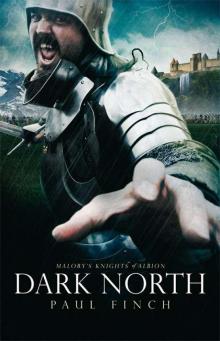 Dark North mkoa-3
Dark North mkoa-3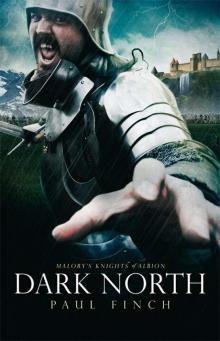 Dark North (Malory's Knights of Albion)
Dark North (Malory's Knights of Albion)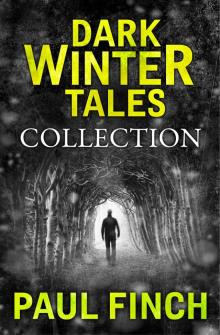 a collection of horror short stories
a collection of horror short stories Sacrifice
Sacrifice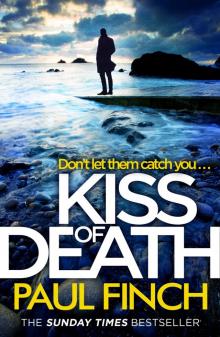 Kiss of Death
Kiss of Death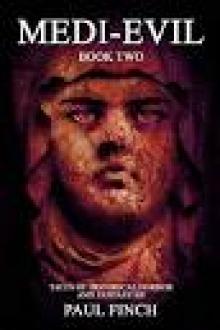 Medi-Evil 2
Medi-Evil 2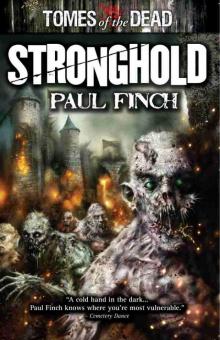 Stronghold
Stronghold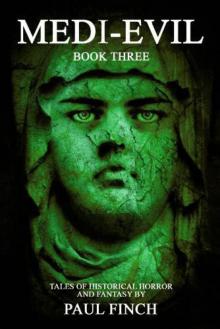 Medi-Evil 3
Medi-Evil 3 Dead Man Walking
Dead Man Walking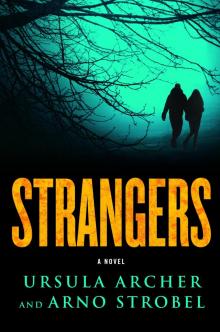 Strangers
Strangers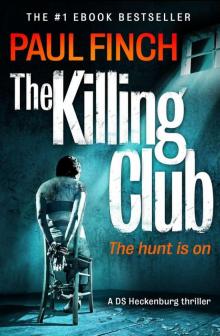 The Killing Club
The Killing Club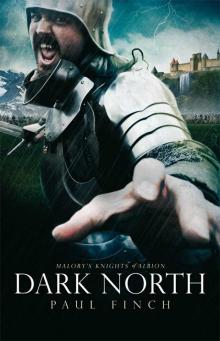 Dark North
Dark North A Wanted Man
A Wanted Man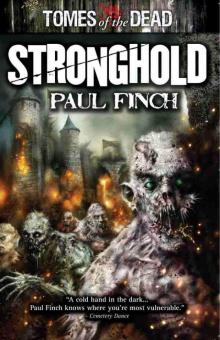 Stronghold (tomes of the dead)
Stronghold (tomes of the dead) Hunted
Hunted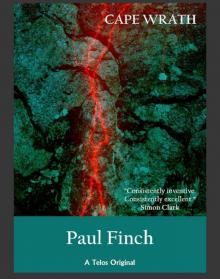 Cape Wrath
Cape Wrath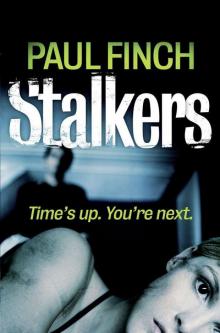 Stalkers
Stalkers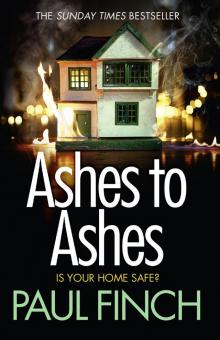 The Burning Man
The Burning Man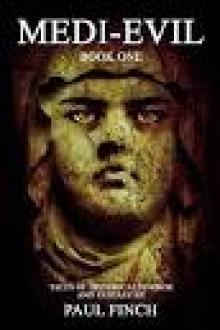 Medi-Evil 1
Medi-Evil 1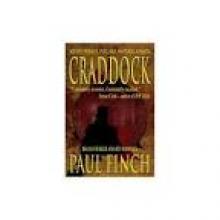 Craddock
Craddock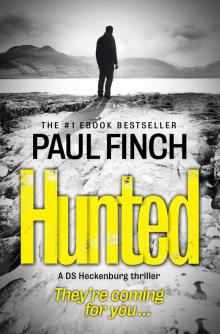 Hunted (Detective Mark Heckenburg Book 5)
Hunted (Detective Mark Heckenburg Book 5)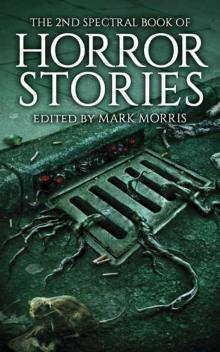 2nd Spectral Book of Horror Stories
2nd Spectral Book of Horror Stories The Chase
The Chase